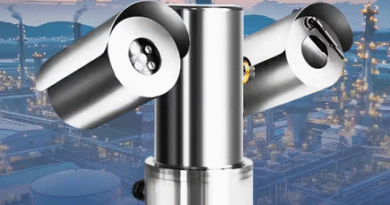What does a cisco cable expert do?
Cisco folds cable access into mobility unite
Cisco has put cable and mobile devices under the same roof. The network provider confirmed that it has combined the cable access unit with the business function. The newly merged entity is now headed by Masum Mir, vice president, and general manager of Cisco’s wireless and cable business unit.
Internal integration will be established shortly after Cisco leaves the cable expansion business (through a license agreement with the ATX network) and years after Cisco sells cable boxes and wire cutters/business doors. Affiliate link to Technicolor.
Cisco has also confirmed the recent retirement of Sean Welch, a former vice president, and general manager of Cisco’s cable operator. George Cajos, who managed the software engineering architecture for the Cisco Integrated Cable Access Platform (vCCAP) and was involved in the vendor’s PHY external product line, was also one of the leaders in the cable access unit. . and Cisco RF engineers who have chosen early retirement packages.
This type of activity, along with HarCCic’s major victory over vCCAP by Comcast and Cisco’s decision to stop investing in DOCSIS Total Duplex (FDX), raised questions about Cisco’s long-term commitment to cisco cable expert.
The company says they are still playing cable network games with analog and digital numbers, including CCAP flagship chassis, CBR-8, new CCAP platform, and remote PHY products that correspond to design accessibility that can be used for coaxial/optical networks. . Internet (HFC)
Connect to network convergence
But Cisco also argues that the time is right to consolidate its cable and mobility efforts as cable operators and other types of service providers advance with network and service convergence strategies.
The combination of cables and movable units will also be reconnected to the Cisco infrastructure team Jonathan Jonathan’s son, SVP, and GM’s broad vision, including a plan to mediate with the Cisco engineering agency, said Tom Kennedy, Chief Operating Officer. of Cisco, Cable, and Mobility.
“In fact, we have worked hard to promote the growth and sustainability of our existing business by changing direction for DOCSIS 4.0 and cloud computing,” said Kennedy. “Similar movements take place as areas of activity.”
According to him, much of this activity and strategy, which focuses on the combination of access to Cisco cables and mobile units, has been around for more than two years including changes that are going well ahead of Welch’s retirement.
“This part was an opportunity to bring the two teams together … and I always connected our series and methods,” Kennedy said.
Among other changes, John Chapman, a former DOCSIS and former CTO for Cisco access unit, is now CTO of Broadband Technology. In an expanded role that will continue to include DOCSIS, Chapman will focus on all access technologies for cable drivers, including 5G RAN, wireless cable access, PON, and network connectivity, according to the company.
Kennedy says CBR-8 will remain Cisco’s flagship product for cable access network and that the vendor will continue to invest in vCCAP and its node products to support DOCSIS 4.0, a new set of CableLabs specs added support equal speeds of different gigabit. , advanced security and low latency capability. DOCSIS 4.0 is also aligned with cable operator plans to maximize the number of HFC and downstream networks.
Kennedy also acknowledged that the migration of the cable industry to the cloud was a “major step forward” which posed significant operational barriers. “It’s very different from today’s CCAP,” he said.
While Cisco’s decision to integrate cables with mobile units is following the path of network transformation, some businesses are questioning whether Cisco can keep its focus on high-end cable products. next, or if that market share is large enough. provides long-term approval and investment.
It will be a marketplace for commercial access retailers
The next two to five years will determine how Cisco works as it looks to expand (or at least maintain) its presence in the cable access market ahead of DOCSIS 4.0 and this step in general “10G” cable industry.
At the same time, the market for cable access providers is undergoing significant change.
While CommScope remains the industry’s leading dog, Harmonic continues to be the vCCAP among Level 1 users such as Comcast and Vodafone, and Vecima Networks continues to be even more aggressive after that. . to get Nokia the latest cable products. At the same time, ATX Networks and Technetix are trying to take over the Cisco trading platform. Casa Systems is also preparing for its online game as the mobile/wireless industry continues to integrate into its online business.



